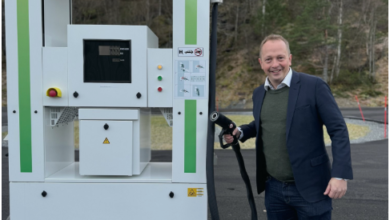New Flyer starts 2021 with a raft of awards for transit buses

The drive to clean transit is getting traction with bus operators are opting for battery-electric and hydrogen buses. New Flyer, Canada HQ bus maker, has started 2021 with winning numerous awards. The company landed a contract with the Metropolitan Atlanta Rapid Transit Authority for an order of six Xcelsior CHARGE™ battery-electric transit buses. This was followed by an award from the Connecticut Department of Transportation with a contract for 12 Xcelsior CHARGE™ battery-electric transit buses, with an option to extend it to 63 additional buses during the two-year agreement. Port Authority of Allegheny County also placed an order for six battery-electric Xcelsior CHARGE™ heavy-duty transit buses.
A few awards are also placed for its clean diesel buses. The City of Winnipeg awarded the company with a contract for 32 clean diesel, forty-foot Xcelsior® heavy-duty transit buses, with an option to extend the contract for five years. New Orleans Regional Transit Authority has awarded New Flyer of America Inc a contract for the supply of 22 clean-diesel, thirty-five-foot Xcelsior® heavy-duty transit buses.
It seems like New Flyer is at full speed of collecting all the contracts which have been on hold due to various factors, chiefly COVID-19. Mr Biden will push his clean energy agenda, which will likely offer more opportunities for hydrogen and battery-electric public transit in the coming months.
In another development, Hexagon Purus, a Norwegian composites company, will supply high-pressure hydrogen tanks to New Flyer. The tanks will be supplied to New Flyer’s Xcelsior CHARGE H2™ hydrogen fuel cell electric transit buses from Q1:2021. The value of the contract is around US$ 0.9 million (NOK 7.7 million). Hexagon Purus will produce these tanks at its North American production facility in Maryland, US.
Xcelsior CHARGE H2™ travel range is up to 300 miles on a single refuelling with no need for off-board electric recharging. The hydrogen tanks are certified in both North America and Europe and will store compressed hydrogen gas at 350 bar. The tanks are produced for medium and heavy-duty fuel cell vehicles and designed explicitly for fuel cell-powered buses.
